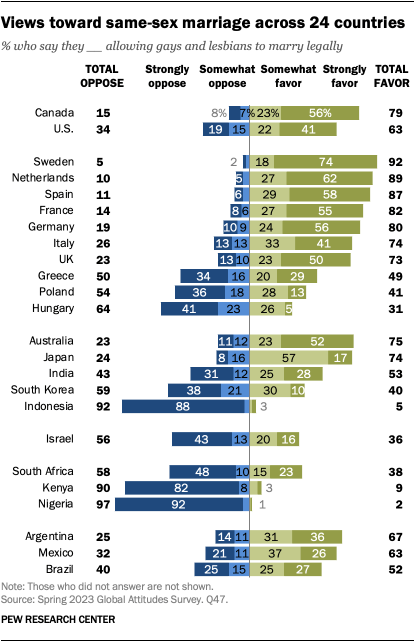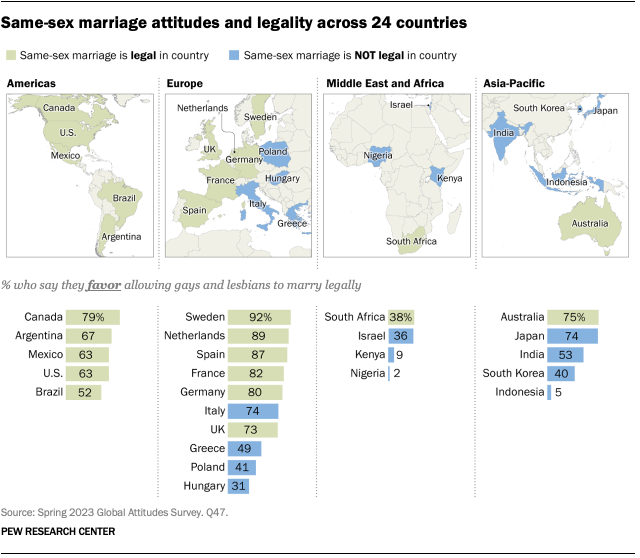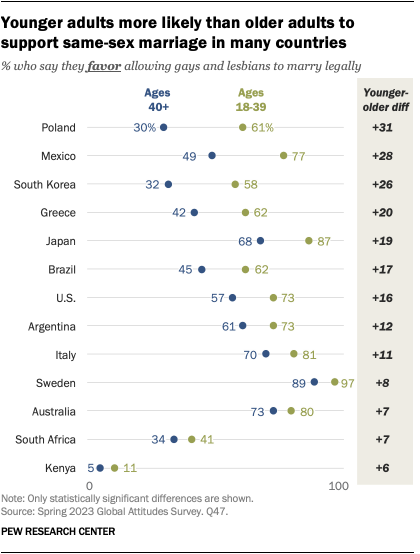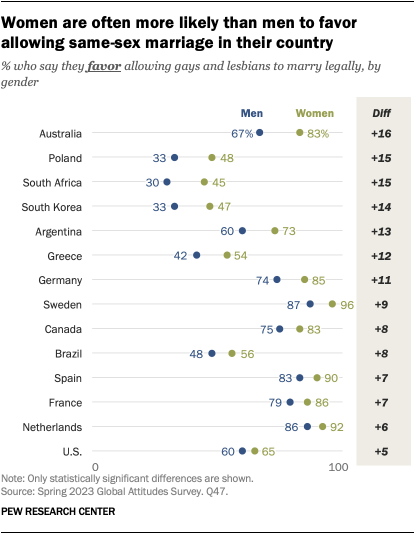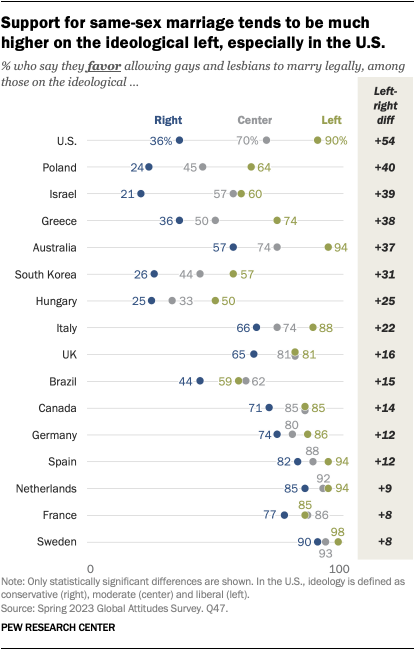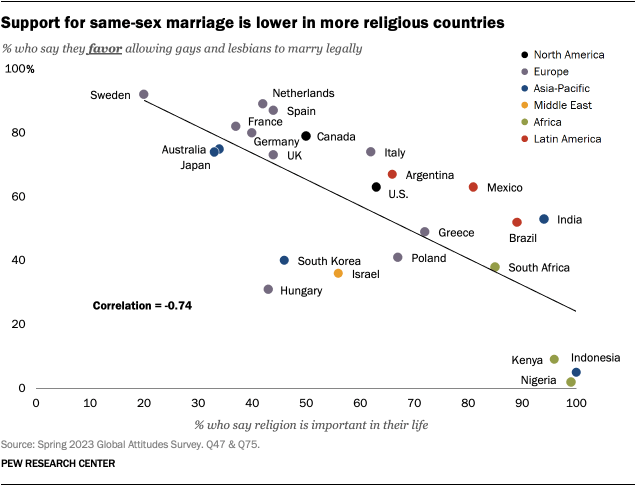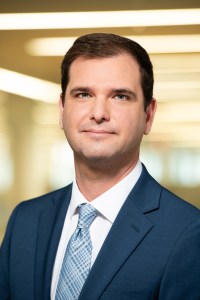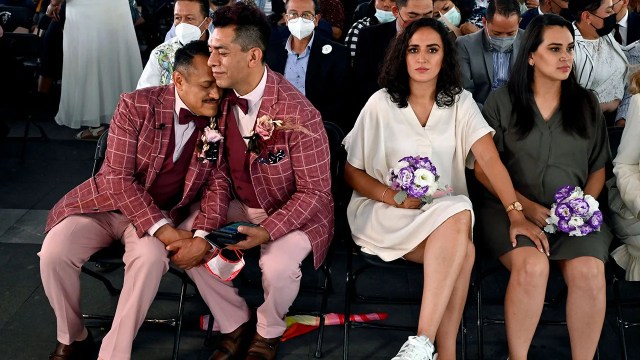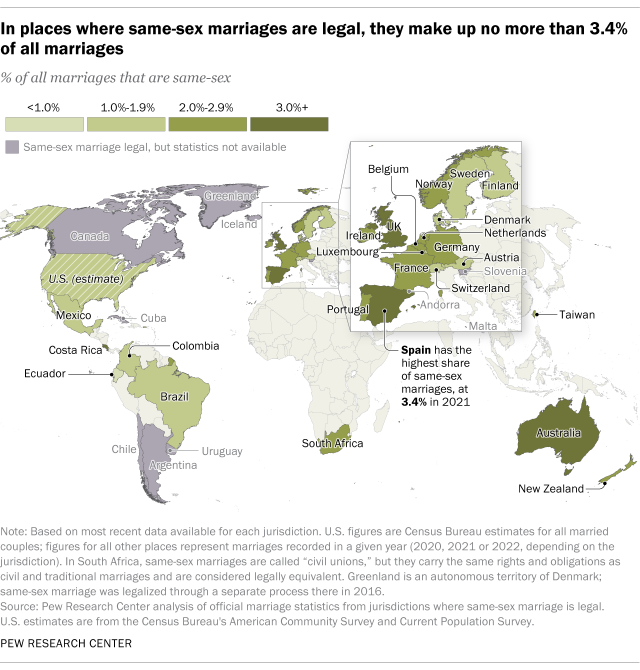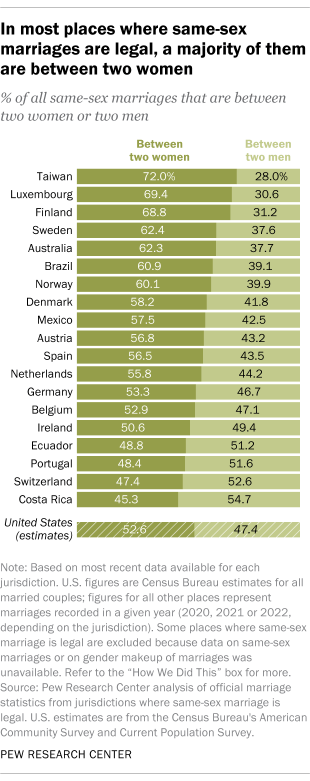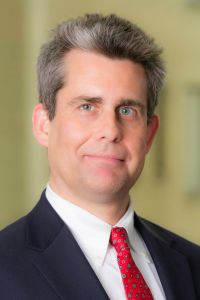GUEST
publisher of The Nation magazine and a columnist for The Washington Post.
LINKS "What kind of peace do we seek? At 60, JFK’s speech never gets old"
President John F. Kennedy’s “peace speech” at American University 60 years ago was a searing critique of Cold War politics and laid out a hopeful vision for a world built on cooperation and empathy, even among rival countries. Kennedy called for “not merely peace for Americans, but peace for all men and women — not merely peace in our time, but peace for all time.” We feature an extended excerpt of Kennedy’s remarks and speak with The Nation publisher Katrina vanden Heuvel about how the speech remains relevant today. The Biden administration “could certainly take a page” from Kennedy’s policies, she says, urging the U.S. to avoid needless escalation during this time of renewed hostility between the United States and Russia over the war in Ukraine.
Transcript
This is a rush transcript. Copy may not be in its final form.
AMY GOODMAN: This is Democracy Now!, democracynow.org, The War and Peace Report. I’m Amy Goodman, with Juan González.
Sixty years ago this week, President John F. Kennedy gave an historic speech at the height of the Cold War calling for peace and a reevaluation of relations with the Soviet Union. Just weeks after Kennedy’s speech, Washington and Moscow signed the Partial Nuclear Test Ban Treaty. This is part of what President Kennedy said June 10th, 1963, during a commencement address at American University in Washington, D.C.
PRESIDENT JOHN F. KENNEDY: I have, therefore, chosen this time and place to discuss a topic on which ignorance too often abounds and the truth too rarely perceived. And that is the most important topic on Earth: peace. What kind of a peace do I mean, and what kind of a peace do we seek? Not a Pax Americana enforced on the world by American weapons of war. Not the peace of the grave or the security of the slave. I am talking about genuine peace, the kind of peace that makes life on Earth worth living, and the kind that enables men and nations to grow and to hope and build a better life for their children. Not merely peace for Americans, but peace for all men and women — not merely peace in our time, but peace in all time.
I speak of peace because of the new face of war. Total war makes no sense in an age where great powers can maintain large and relatively invulnerable nuclear forces and refuse to surrender without resort to those forces. It makes no sense in an age where a single nuclear weapon contains almost 10 times the explosive force delivered by all the allied air forces in the Second World War. It makes no sense in an age when the deadly poisons produced by a nuclear exchange would be carried by wind and water and soil and seed to the far corners of the globe and to generations yet unborn.
Today the expenditure of billions of dollars every year on weapons acquired for the purpose of making sure we never need them is essential to the keeping of peace. But surely the acquisition of such idle stockpiles — which can only destroy and never create — is not the only, much less the most efficient, means of assuring peace. I speak of peace, therefore, as the necessary, rational end of rational men. I realize the pursuit of peace is not as dramatic as the pursuit of war, and frequently the words of the pursuers fall on deaf ears. But we have no more urgent task.
Some say that it is useless to speak of peace or world law or world disarmament, and that it will be useless until the leaders of the Soviet Union adopt a more enlightened attitude. I hope they do. I believe we can help them do it. But I also believe that we must reexamine our own attitudes, as individuals and as a nation, for our attitude is as essential as theirs. And every graduate of this school, every thoughtful citizen who despairs of war and wishes to bring peace, should begin by looking inward, by examining his own attitude towards the possibilities of peace, towards the Soviet Union, towards the course of the Cold War and towards freedom and peace here at home. First examine our attitude towards peace itself. Too many of us think it is impossible. Too many think it is unreal. But that is a dangerous, defeatist belief. …
And second, let us reexamine our attitude towards the Soviet Union. … No government or social system is so evil that its people must be considered as lacking in virtue. As Americans, we find communism profoundly repugnant, as a negation of personal freedom and dignity. But we can still hail the Russian people for their many achievements in science and space, in economic and industrial growth, in culture, in acts of courage.
Among the many traits the peoples of our two countries have in common, none is stronger than our mutual abhorrence of war. Almost unique among the major world powers, we have never been at war with each other. And no nation in the history of battle ever suffered more than the Soviet Union in the Second World War. At least 20 million lost their lives. Countless millions of homes and families were burned or sacked. A third of the nation’s territory, including two-thirds of its industrial base, was turned into a wasteland — a loss equivalent to the destruction of this country east of Chicago.
Today, should total war ever break out again, no matter how, our two countries will be the primary target. It is an ironic but accurate fact that the two strongest powers are the two in the most danger of devastation. All we have built, all we have worked for, would be destroyed in the first 24 hours. And even in the Cold War, which brings burdens and dangers to so many countries, including this nation’s closest allies, our two countries bear the heaviest burdens, for we are both devoting massive sums of money to weapons that could be better devoted to combat ignorance, poverty and disease. We are both caught up in a vicious and dangerous cycle, with suspicion on one side breeding suspicion on the other, and new weapons begetting counter-weapons.
In short, both the United States and its allies, and the Soviet Union and its allies, have a mutually deep interest in a just and genuine peace and in halting the arms race. Agreements to this end are in the interests of the Soviet Union, as well as ours. And even the most hostile nations can be relied upon to accept and keep those treaty obligations, and only those treaty obligations, which are in their own interest.
So let us not be blind to our differences, but let us also direct attention to our common interests and the means by which those differences can be resolved. And if we cannot end now our differences, at least we can help make the world safe for diversity, for in the final analysis, our most basic common link is that we all inhabit this small planet. We all breathe the same air. We all cherish our children’s futures. And we are all mortal.
Third, let us reexamine our attitude towards the Cold War, remembering we’re not engaged in a debate, seeking to pile up debating points. We are not here distributing blame or pointing the finger of judgment. We must deal with the world as it is, and not as it might have been had the history of the last 18 years been different. We must, therefore, persevere in the search for peace in the hope that constructive changes within the communist bloc might bring within reach solutions which now seem beyond us. We must conduct our affairs in such a way that it becomes in the communists’ interest to agree on a genuine peace. And above all, while defending our own vital interests, nuclear powers must avert those confrontations which bring an adversary to a choice of either a humiliating retreat or a nuclear war. To adopt that kind of course in the nuclear age would be evidence only of the bankruptcy of our policy or of a collective death wish for the world.
AMY GOODMAN: That was President John F. Kennedy, June 10th, 1963. Just weeks after his speech, Washington and Moscow signed the Partial Nuclear Test Ban Treaty. Kennedy would be assassinated on November 22nd, 1963, less than six months later.
Joining us now is Katrina vanden Heuvel, publisher of The Nation magazine, columnist for The Washington Post, her new piece for Responsible Statecraft headlined “What kind of peace do we seek? At 60, JFK’s speech never gets old.”
First, Katrina, congratulations on receiving the Marcus Raskin Award for Civic and Intellectual Courage.
KATRINA VANDEN HEUVEL: Thank you. Marc was someone who could not condone the madness of the arms race, which he was present at the creation of.
JUAN GONZÁLEZ: Katrina, I’d like to ask you about this extraordinary speech. Nikita Khrushchev called it the greatest speech by a U.S. president since Franklin Delano Roosevelt. And the timeliness of it, given the situation we’re facing now — of course, then, the United States was in a Cold War with the Soviet Union, but now it’s the Russian Federation, no longer communist, now an openly capitalist [inaudible], yet we still have a similar confrontation.
KATRINA VANDEN HEUVEL: You know, what interests me, Juan, is, when you listen to the speech, first of all, many people in this country would think President John F. Kennedy was a subversive. I’m not sure he’d be permitted on TV, or some of our TV. He might be demonized or slurred. “Peace” has become a subversive word in these last decades, and that is a tragedy.
There’s reference to 18 years before as he gives his speech, and that’s a reference to Hiroshima, Nagasaki, and also the charged environment coming off of the Cuban missile crisis, where millions of Americans did feel hostage to the nuclear arms race. That has dimmed, in a sense. I mean, Amy, you remember, Juan, perhaps, a million people in Central Park in June 1982 fighting for a freeze of the intermediate nuclear range missiles. But with the waning of fear, there’s been a normalization in talk about using tactical nuclear weapons. And this is so dangerous.
I think what President Kennedy’s speech does — and you just did an extraordinary public service — in retrieving American history, there are parts so many don’t know, and that speech is vital for a roadmap, a guide, a primer for today. As I write in the Responsible Statecraft piece, the Biden administration could certainly take a page, because they are so far away from this thinking in terms of the belief that military might is what is needed to resolve the critical needs of our country and the world at this time.
JUAN GONZÁLEZ: And could you talk about Norman Cousins, who was an anti-nuclear and peace activist who had enormous influence on this speech? The historians have said that Kennedy did not at all alert either the CIA or the Joint Chiefs of Staff that he was about to make this speech.
KATRINA VANDEN HEUVEL: [inaudible] Cuban missile crisis and the Bay of Pigs, that he couldn’t rely on the military. And in that context, he brought together not only Norman Cousins — and that’s an interesting side story, because in previous administrations over time, people have been brought in as mediators, not officials, but, for example, in negotiating with Cuba years before. Norman Cousins was a very eminent editor of The Saturday Evening Post, and he also had relations with Kennedy. And Kennedy trusted him to speak to Khrushchev. And I think that kind of negotiation can be valuable when the officials are frozen. You know, where is — John Kerry is in the administration. But where is John Kerry, perhaps, negotiating, talking behind the scenes? I think we want more transparency in our foreign policy, but at the same time, negotiations often demand a level of behind the scenes.
AMY GOODMAN: So, Katrina, we’re speaking now as the largest NATO air deployment exercise in its history is going on in Germany, with over 10,000 participants, 250 aircraft from 25 nations. Japan and Sweden, not NATO allies, are also participating on this — in this. Can you talk about the significance of this at this time, and what you feel needs to happen?
KATRINA VANDEN HEUVEL: Well, imagine, at this juncture, where there could be a track toward escalating negotiations, talk; instead, we have, as you noted, the largest air exercise, NATO air exercise, in history. And I think that is a measure of the mindset that President Kennedy warned of, the militarization of the mindset.
Now, I condemn the war, the brutal war. In addition to what we’re witnessing with NATO air exercises, Amy, Juan, we are witnessing probably the greatest environmental disaster in the modern history of Ukraine with the breach of the dam. So, there are costs that demand attention, and instead we’re getting all these military investors continuing to hawk, peddle their wares. And as President Kennedy said, this is not addressing the poverty, the disasters, the pandemics, the climate. This is addressing more and more wealth, money going to the arms race. And that is a tragedy, and one that President Kennedy alludes to in his great speech.
JUAN GONZÁLEZ: And, Katrina, could you talk about how this speech then, subsequently, led to a Partial Nuclear Test Ban Treaty between the United States and the Soviet Union?
KATRINA VANDEN HEUVEL: Well, I mean, the idea of words leading to deeds was a part of the Cold War history, ironically. What we’ve witnessed in these last years, decades, is the rollback of the infrastructure of arms control. Now, some people are more abolitionist, but the prudentialists, let’s say, are witnessing more and more nuclear stockpiles. I believe the nuclear stockpiles, according to a Swedish institute last month, have grown. And what has not grown are the negotiations needed to curb the dangerous, perilous menace. The Bulletin of Atomic Scientists moved its Doomsday Clock forward to alert people. But we seem to be sleepwalking, or, instead of sleepwalking, it’s all about the new lists of weapons.
So, you know, I don’t agree with Ambassador Michael McFaul on much, I’ll tell you, but there — Sam Charap, in a very good piece in Foreign Affairs, noted that there is like 300 military people, in a commission, are tasked with military equipment purchases. There is one — there is no conflict diplomatic figure tasked at this moment to trying to find a dual-track way to end this war, which is ravaging Ukraine and ravaging Russia. And those who are serving are the poor, the provincial men — they’re men. And the elites, which is what this dangerous figure, Prigozhin, is trying to make hay out of, are doing pretty well, many of the elites.
So, this is a very difficult time internally, in addition to what’s happening this country, where the Russophobia is afflicting the mindset of cancel. You know, cancel Dostoevsky? Cancel Chekhov? I mean, I think this is madness. And President Kennedy’s words are those of a sober person, a president. I mean, if he gave that speech on the floor of the Capitol, he’d be run off, which is a measure of what we need to do to return to sanity and restraint and a diplomatic — you know, and war should be the very, very, very last resort, which is not the case.
AMY GOODMAN: Katrina vanden Heuvel, we thank you so much for being with us, publisher of The Nation magazine, columnist for The Washington Post. Her new piece for Responsible Statecraft, we’ll link to it, “What kind of peace do we seek? At 60, JFK’s speech never gets old.”
The original content of this program is licensed under a Creative Commons Attribution-Noncommercial-No Derivative Works 3.0 United States License. Please attribute legal copies of this work to democracynow.org. Some of the work(s) that this program incorporates, however, may be separately licensed. For further information or additional permissions, contact us.

